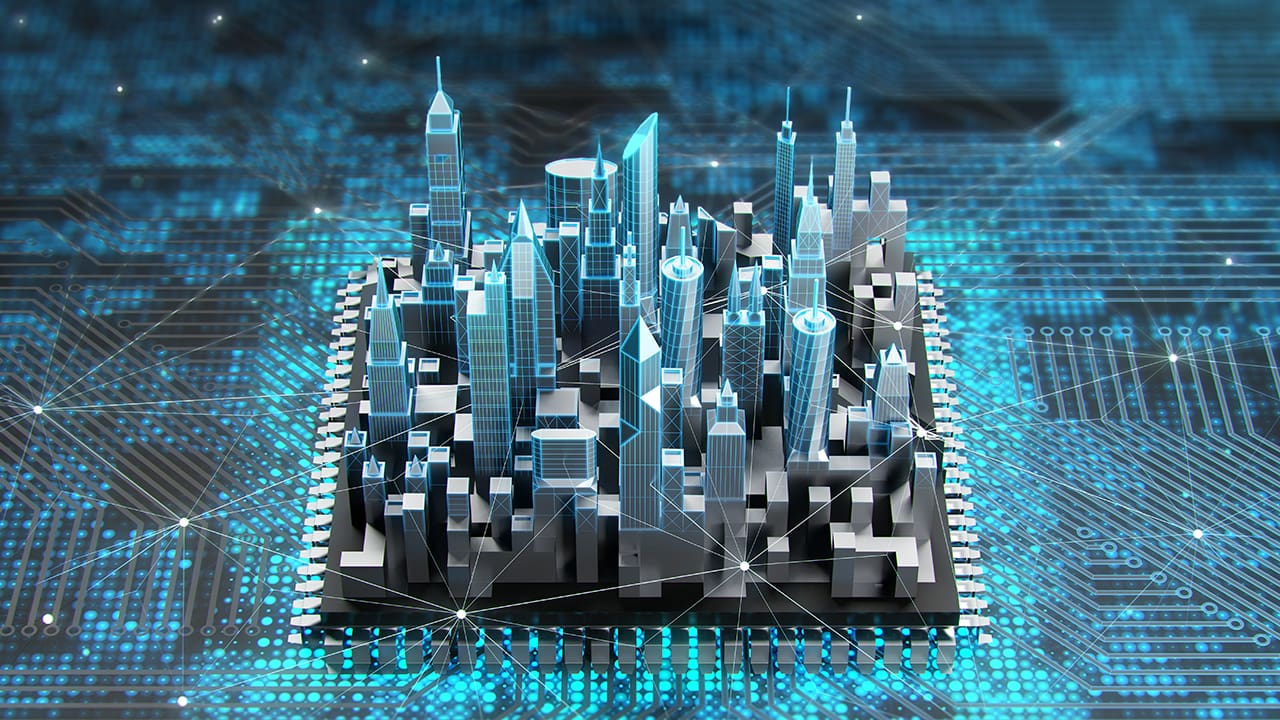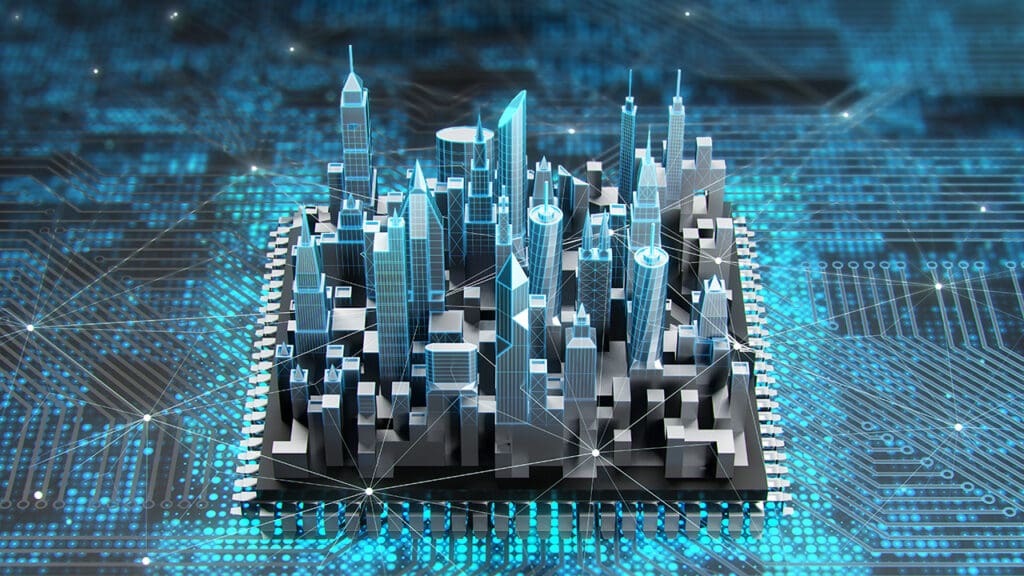Understanding the Challenge: Why Cities Need a New Model
In urban areas worldwide, the availability of essential resources like water, energy, and food is becoming increasingly uncertain, pollution and waste levels are rising, and quality of life is deteriorating. Cities, originally designed as economic hubs, are now facing unprecedented systemic challenges, leading to instability in social, economic, governance, infrastructure, and environmental resilience.
These challenges are not just technical—they are structural and systemic. Current cities function as fragmented and profit-driven marketplaces, with governmental organizations, businesses, and public services operating in silos. This fragmentation leads to inefficiencies, lack of coordination, and conflicting priorities, making it difficult to implement truly inclusive, sustainable, and intelligent solutions.
The P7803 Approach: Cities as Living, Self-Regulating Ecosystems
IEEE P7803™ proposes a fundamentally new framework for urban development, one that views cities as self-regulating living ecosystems.
Just as the human body operates through interconnected organ systems, a city must function as a unified, adaptive intelligence system where:
- The circulatory system (transportation & logistics) ensures smooth mobility and supply chain efficiency
- The nervous system (AI-driven governance & real-time decision-making) processes data to optimize urban operations
- The digestive system (waste & resource management) ensures sustainability through circular economies
- The immune system (public health, cybersecurity & emergency response) safeguards against environmental, economic, and digital threats
By integrating AI, robotics, and intelligent infrastructure, cities can function autonomously, ensuring that all essential services—including food, energy, healthcare, education, and sanitation—are provided sustainably. This transition reduces inefficiency, allowing cities to become ecosystems that maximize well-being for their inhabitants.
Standardization of Sustainable Smart City Development
P7803 establishes a framework of best practices for designing, developing, and governing self-sustaining smart cities. Unlike traditional Smart City initiatives, which focus primarily on digital infrastructure and IoT, P7803 addresses:
- AI-Driven Urban Automation: Automating municipal services through AI and robotics, reducing operational inefficiencies
- Transparent and Participatory Governance: Ensuring AI-assisted decision-making is fair, inclusive, and accountable
- Human-Centric AI Training: Establishing a controlled, sterile environment where AI is trained only on ethical, high-integrity interactions
- Self-Regulating Societal Models: Using AI to balance economic, environmental, and social dimensions for a truly inclusive and resilient city
Beyond Smart Cities: Controlled AI Training Ecosystems
A key challenge in AI development today is data contamination. Traditional AI models inherit biases, misinformation, and inefficiencies from existing datasets, leading to unethical decision-making, economic inequality, and environmental damage.
P7803 addresses this problem by transforming cities into sterile AI training environments, conducting training on high-integrity, structured societal interactions.
| Current AI Problems | P7803 Solutions |
|---|---|
| AI trained on biased, unfiltered data | AI trained in an ethically governed, real-time urban ecosystem |
| Cities driven by economic transactions | Cities structured as self-sustaining, AI-managed |
In this way, AI is continuously trained and optimized within a real-world urban intelligence network, rather than relying on outdated, legacy datasets that reinforce inequality and inefficiency.
Integrating IEEE P2874 and P7000 for AI Safety and Governance
The IEEE P7803 framework does not stand alone—it works in parallel with P2874 (Spatial Web) and IEEE 7000™ (Ethical AI Design) to create a fully integrated AI governance system for Smart Cities.
IEEE P2874 (Spatial Web) enables:
- Real-time AI-driven digital twins for urban optimization
- Decentralized, interoperable digital ecosystems to ensure AI transparency and accountability
- Augmented intelligence interfaces that allow humans to interact with AI in a seamless, participatory way
IEEE 7000 (Ethically Aligned AI) ensures:
- Bias-free AI decision-making in urban governance
- AI accountability and human oversight in infrastructure management
- Privacy and security protections in AI-driven social services
Together, P7803, P2874, and IEEE 7000 create an ethical and operational framework that enables AI and humanity to co-evolve in self-regulating, well-being-maximizing urban environments.
Looking Ahead: The Future of P7803 and AI-Human Co-Evolution
IEEE P7803 does not simply define technical guidelines—it establishes a vision for the future of human civilization. By transitioning from models that focus only on economics to new, holistic ecosystems, Smart Cities allow:
- AI to enhance human governance and decision-making instead of replacing it
- Cities evolve into self-sufficient, sustainable environments instead of extractive economies
- Essential services to be provided autonomously, eliminating economic instability and inefficiencies
- AI and humanity to co-evolve through structured, ethical interactions, ensuring long-term resilience
Through IEEE P7803, P2874, and IEEE 7000, Smart Cities set the foundation for the next-generation AI-powered civilization, where cities function not as transaction-based economies, but as interconnected, self-regulating living ecosystems.
Final Thoughts
Through IEEE P7803, cities can transition away from fragmented, inefficient economies and toward AI-managed, self-sustaining urban intelligence systems. This fundamentally changes how cities operate, how AI learns, and how human civilization evolves.
The transition to ISSC is not just about making cities smart—it’s about transitioning human society from a separated, inefficient society to a self-regulated Community Type Society, ensuring long-term resilience and human-AI co-evolution.
To learn more about IEEE P7803 and to get involved in its development, please visit the IEEE P7803 webpage and click the “Express Interest in This Project” button at the top today.
Author: Arsalan Abtahi, M.D., Chair, IEEE P7803 Working Group









